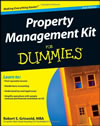All Articles
Accounting
Land Mapping - Surveying - Zoning
Alternative Dispute Resolution (ADR)
Land Use
Appraisal & Valuation
Logistics - Reverse Logistics
Arms - Guns - Weapons
Medicine
Artificial Intelligence (AI) / Machine Learning (ML)
Meditation
Attorney Fees
Nursing
Boating
Obstetrics - Gynecology (OBGYN)
Chemical Industry
Pain Management
Computers
Patents
Criminology
Pharmaceuticals
Discovery & Electronic Discovery
Plants & Trees
Education & Schools
Plastic / Reconstructive / Cosmetic Surgery
Elder Abuse
Police Practices & Procedures
Elevators - Escalator - Automatic Doors
Politics
Energy - Utilities
Pools and Spas (Recreational)
Engineering
Premises Liability
Enterprise Resource Planning (ERP)
Professional Skills
Exercise & Fitness
Psychiatry
Expert Witnessing
Public Speaking
Failure Analysis
Recreation & Sports
Forensic Analysis
Search Engine Optimization (SEO)
Hazardous Materials
Securities
Healthcare
Security
Hotels & Hospitality
Sexual Abuse - Molestation - Harassment
International Trade
Warnings & Labels
More...

REAL-ESTATE-PAGE ARTICLES MAIN PAGE
. Contact Us if you are interested in having your work published on our website and linked to your Profile(s).
All Articles
Alternative Dispute Resolution (ADR)
Healthcare
Archaeology - Archeology
Hotels & Hospitality
Architecture
Industrial Hygiene and Safety
Arms - Guns - Weapons
Injury
Banking
Insurance Coverage Analysis
Business Consulting
International Trade
Chemical Industry
Jails - Prisons - Correctional Facilities
Child Welfare
Land Mapping - Surveying - Zoning
Criminology
Land Use
Digital / Crypto Currency
Life Expectancy - Life Care Planning
Discovery & Electronic Discovery
Logistics - Reverse Logistics
Documentation Examination & Analysis
Machinery
Domestic Violence
Manufacturing
Education & Schools
Metallurgy
Elder Abuse
Nonprofit Organizations
Employment
Oil & Gas
Enterprise Resource Planning (ERP)
Psychiatry
Environment
Real Estate
Ethics / Ethical Duties
Security
Exercise & Fitness
Spirituality
Feng Shui
Supply Chain Management
Finance
Taxation
Foot / Ankle Surgery
Toxicology
Forensic Analysis
Transportation
Gems & Jewelry
Warnings & Labels
More...
Featured Articles
There are no active articles here at this time. Please use the search bar, try another category, or contact us if you would like to contribute an article.
This Article is unavailable. Contact Us
Search articles by title, description, author etc.
Sort Featured Articles
Featured resources
Submarine Groundwater
by Lorne G. Everett, PhD, et al
C Programming: Memory & Pointers...
by Shahid H. Bokhari, PhD
Property Management Kit For Dummies
by Robert S. Griswold
Follow us










